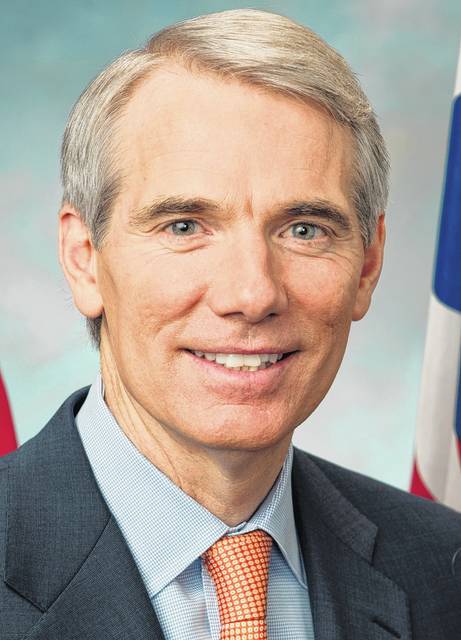
WASHINGTON – U.S. Senators Rob Portman (R-Ohio) and Maria Cantwell (D-Washington) praised the House of Representatives for passing legislation they introduced earlier this year – the Ensuring Medicaid Provides Opportunities for Widespread Equity, Resources, and Care Act (EMPOWER Care Act) – which is designed to help Medicaid beneficiaries receive long-term services and support in their community or home and help save taxpayer dollars in the process.
The bill will reauthorize for five years and expand the Money Follows the Person (MFP) Demonstration Program, which provides states with funding and flexibility to help Medicaid beneficiaries, particularly the elderly and people with disabilities, transition from institutional to home and community-based long-term care settings. The House passed the bill on Tuesday as part of the Empowering Beneficiaries, Ensuring Access, and Strengthening Accountability Act (H.R. 3253).
“This measure will help the most vulnerable among us have better access to quality health care services,” Portman said. “It ensures the Money Follows the Person Program can build upon the more than 10,000 Ohioans that it has helped receive the care that they need in their homes and communities. I’m pleased that the House has approved this bill in a bipartisan fashion and I am urging my colleagues in the Senate to follow suit and pass it quickly as well.”
“The EMPOWER Care Act will help more people access long-term care while staying in their own homes. This common-sense program solution will promote home- and community-based care, by giving states tools and resources to improve quality of life and reduce health care costs in their Medicaid programs,” said Cantwell. “Community-based long-term care is a win-win-win for patients, providers and Medicaid programs.”
About the process
In April, the president signed into law a temporary, six-month extension of the Money Follows the Person Program but a long-term reauthorization is needed to provide Medicaid beneficiaries and states with the certainty they deserve. The EMPOWER Care Act reauthorizes funding for the Money Follows the Person program for five years. It also expands eligibility for the program by reducing the amount of time that a beneficiary must wait to participate in the program, and tasks the Department of Health and Human Services (HHS) to study and evaluate best practices and other ways to build upon the current program. According to HHS estimates, the program saves an estimated $1,840 per transition, while improving quality of life for beneficiaries.
As of September 2016, 43 states and the District of Columbia have participated in the MFP Demonstration Program. Since its inception, the program has saved more than $1 billion for Medicare and Medicaid and helped over 63,000 individuals receive care at home or in a community-based setting, according to a report by the U.S. Department of Health and Human Services.
“People with disabilities and older adults simply want the same thing we all want – to live independently and age with dignity. However, far too many people end up in costly nursing homes when they could remain at home if they had access to community-based services,” said Joe Caldwell, National Council on Aging Director of Long-term Supports and Services. “The Money Follows the Person program is an integral support states need to help transition more individuals back home. It has improved the lives of over 75,000 individuals with disabilities and older adults and saved the federal government and states nearly a billion dollars. We applaud the bi-partisan leadership of Senators Portman and Cantwell to extend and improve the program.”
HOME Choice, Ohio’s iteration of the Money Follows the Person (MFP) program, was one of the first MFP programs in the country. According to the Ohio Department of Medicaid, it ranks first nationally in transitioning individuals with mental illness into home-based settings and second in overall transitions completed. Ohio continues to pave the way in long-term care delivery and an extension of the Money Follows the Person program will continue to allow for Ohio to continue to lead the way in optimizing care for those in need.
“The Money Follows the Person program has been an outstanding success in transitioning older adults and people with disabilities out of nursing homes and back into their homes and communities. Through Money Follows the Person, Ohio has been able to further its commitment to rebalancing long term services and supports towards more home and community-based care. Providing the necessary supports upfront and during those critical first months not only saves money, but it also allows people to live where they prefer,” said Larke Recchie, CEO of Ohio Association of Area Agencies on Aging.


